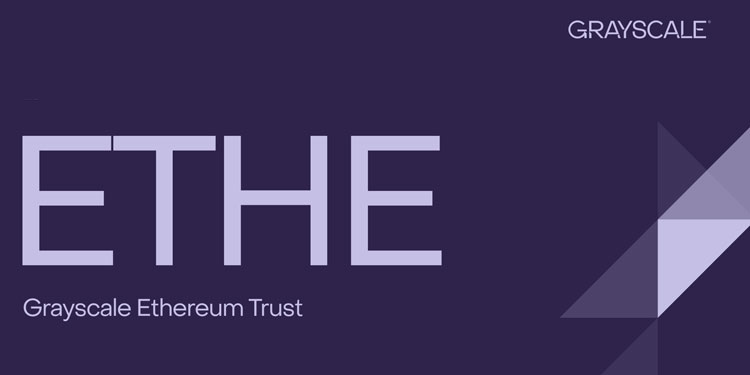Grayscale may be among the most renowned alternative investments in the cryptocurrency world. Despite this, investors should not see the firm as a safe haven. Grayscale’s holdings is as vulnerable to the bad market as everyone else’s; in reality, it is now trying to cling on. The flagship business of Grayscale is caught up in what many anticipate will be the following FTX. In the meantime, the unforgiving market has thrown Grayscale’s already troubled goods into disarray. Record lows for one among the company’s largest cryptocurrency trusts are sufficient proof of this.
At $4.84, the Grayscale Ethereum Trust (OTCMKTS:ETHE) may seem to be an inexpensive option to passively invest in Ethereum (ETH-USD). However, a stake in ETHE is gradually becoming less dependent on ETH pricing. Currently, the trust is transacting at a fresh all-time low, down 60% compared with ETH rates. Its principal trust, the Grayscale Bitcoin Trust (OTCMKTS:GBTC), is also underperforming. With a valuation of $8.20, GBTC is selling at a discount of 45 percent to Bitcoin (BTC-USD) values.
The fresh lows compound an already difficult environment for Grayscale investments. In only one year, the company’s aggregate assets under management (AUM) have decreased dramatically. At the close of 2021, the firm’s AUM exceeded $43 billion, establishing it as a crypto futures trading behemoth. At the beginning of 2023, however, these assets have diminished dramatically. Grayscale’s AUM throughout all 17 trusts and crypto exchange-traded funds (ETFs) is little more than $14.6 billion, a drop of 66%.
It is unfortunate that the values of ETHE and GBTC continue to diverge from their corresponding cryptocurrencies. But there are additional issues Grayscale is working on at the moment, and the manner in which these events play out might have a significantly negative impact on the firm than the market downturn.
Consider Grayscale’s battle with the Securities and Exchange Commission (SEC). The business launched a complaint against the SEC in July 2022 for dismissing its proposal for a spot Bitcoin ETF. The case follows several denials of this spot ETF product, a move that Grayscale describes as “arbitrary, irrational, and biased.” In October, the business issued its first response to the case. Considering that Grayscale’s primary objective is to launch a spot Bitcoin ETF, a victory on its part might actually save the company’s existence. In the meanwhile, however, it is a financial black hole that does not assist Grayscale at a challenging time.
In addition, Grayscale’s parent firm, Digital Currency Group, has meta difficulties (DCG). DCG, which holds both Grayscale and cryptocurrency brokerage Genesis, owes almost $1.6 billion to the latter business. Genesis owes customers of Gemini’s marketplace $900 million, and it is under increasing pressure from Gemini to come up with the funds.
DCG has few options for navigating its dangerous condition. Bernstein recommended, as one of them, that DCG liquidate and sell Grayscale’s Bitcoin Trust. This action would save DCG in the near run. Nevertheless, it would reduce Grayscale’s AUM by $10,4 billion, thereby destroying the firm’s long-term sustainability.
